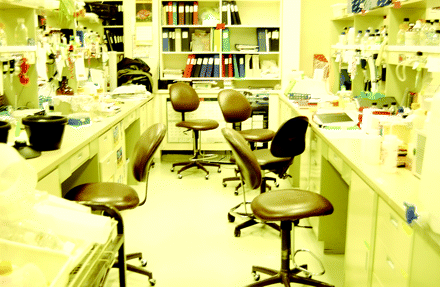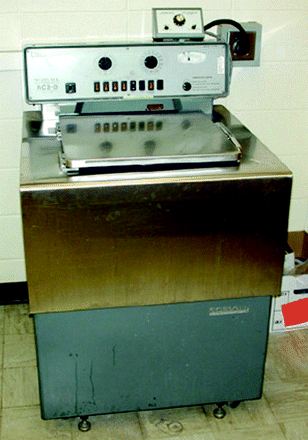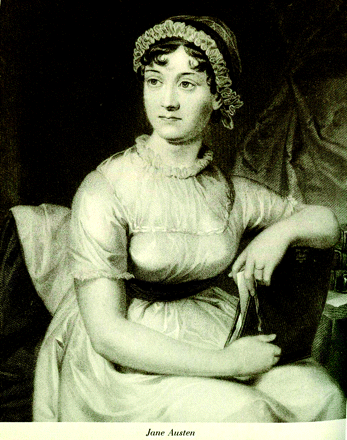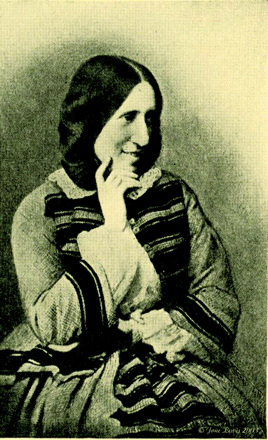Desperate Postdocs in the Laboratory of the Damned
- Tanya Jelacic, PhD
- Tanya Jelacic, PhD, received her doctoral degree in Pharmacology from the Mayo Graduate School in Rochester, MN. She has conducted basic research at the Children’s Hospital, Boston and the National Cancer Institute at Frederick, MD. Her next assignment will be at the United States Army Medical Research Institute for Infectious Diseases.
Intuition.

Allegra Goodman. New York: The Dial Press; 2006. 400 pages. $13.00 ISBN: 0385336101
Novels that accurately portray life in a research lab are rare. It is rarer when such a novel is written by a non-scientist. Allegra Goodman is a novelist who has drawn comparisons to Jane Austen and George Eliot for her skill in elucidating human nature. Her previous novels The Family Markowitz and Kaaterskill Falls detailed Jewish-American family life. Her latest novel, Intuition, delves into the insular world of biomedical research. Intuition is set in a cancer research lab at a prestigious research institute in Cambridge, Massachusetts. Two principal investigators, the charismatic Sandy Glass, MD, and the cautious and exacting Marion Mendelssohn, PhD, head the lab. Among the postdocs are Robin, who has been doggedly working on an amorphous project for five years, and her lover Cliff, the golden boy whose grad school promise has not been fulfilled in three years as a postdoc. As the novel opens, Cliff is being berated by Glass and Mendelssohn for not abandoning a failing project. When Cliff’s failing project suddenly takes off, simmering tensions in the lab erupt into a full boil, culminating in an investigation of scientific fraud.
Goodman did her own research for the novel, visiting labs in Cambridge, Massachusetts, and it shows. The physical setting of the lab is described perfectly down to the small details. Goodman conjures up the crowded feeling typical of many labs, so overflowing with past and present experiments that “there [is] scarcely an inch of counter space.” Although the researchers are exploring the frontiers of medicine, not everything in the lab is cutting-edge. Budgetary constraints force the researchers to hang on to out-of-date but functional equipment such as a “centrifuge, designed for spinning down cells in solution, [that] was clunky as an ancient washing machine.” Also included among the set pieces are an Indian postdoc and a Russian technician, who unlike the central figures, are not developed into three-dimensional characters. This is the lab as most scientists know it—busy, cluttered, and multicultural.


Beyond realizing the physical setting, Goodman captures the intense atmosphere of a lab at a prestigious research institute exactly. Such labs are not easygoing places to work. The Glass-Mendelssohn lab is overcast with a miasma of cynicism and depression. After his dressing down from Glass and Mendelssohn, Cliff finds himself “demoralized and depressed—emotions entirely accepted, even expected, in the lab.” Research involves a lot of failures, and all labs, to varying degrees, are plagued by this kind of emotional fog. It is not invented or even exaggerated for the purpose of the novel. In some labs, failure rears its ugly head rarely, but in others, like the Glass-Mendelssohn lab, it is the status quo. Even the principal investigators Glass and Mendelssohn are not entirely immune to it. As they discuss their disappointment at Cliff’s failure to produce results like they had expected, they admit: “Talent and intelligence, not to mention tireless hard work, got lab scientists through the door, but—this was the dirty secret—you needed luck.” Even established researchers can sometimes feel like they’re at the mercy of the fates.
Scenes in and out of the lab feel natural and unforced, but the scene that rings hauntingly true is the Christmas party held in Sandy Glass’s opulent home. The postdocs are not particularly keen to go but cannot resist the allure of free food and drinks. Once they get there, their awkwardness is obvious even to Glass’s teenage daughter: “At a slight distance, clutching their drinks, stood the small contingent from her father’s lab. They huddled together for mutual protection, the women spindly in high heels, the men trussed up in crimson neckties.” These two sentences elegantly convey the plight of the postdocs. Long hours in the lab engender a lack of social skills, and the genteel poverty of life on a stipend affords few glamorous nights out. If you have ever worked at a lab at a medical institution, chances are you’ve been to this party and perhaps hung out in that stiff cluster gawking at the MDs arriving in silk suits and BMWs.

The experiments in the novel are described in general, accurate terms. Goodman wisely set her novel in the 1980s, avoiding current technologies so that contemporary scientists aren’t distracted by a need to nitpick technical details, though one can’t help thinking that Robin’s project would have benefited greatly from a tandem mass spec or a micro-array. The tumor-bearing nude mice that play a central role in the drama are described from a researcher’s point of view, respectful of their importance to research almost to the point of being reverential; they are “the human body writ small.”
Goodman deftly handles laboratory themes that we all recognize: the failed hypothesis too beloved and beautiful to abandon, the non-starter project that pulls postdocs in like a bog, and of course, the ever-present drive to “publish or perish.” It is the combination of these things that drive Cliff to read more into his data than warranted. Cliff has invested too much of his life into his R-7 project to let it go without a payoff, and Robin has gone too long without a payoff to accept Cliff’s sudden success with grace. In the background Marion Mendelssohn’s husband Jacob has had enough of her close collaboration with Sandy Glass.
Like Goodman’s previous novels, Intuition is an exposition of interpersonal relationships. Intuition explores desire, desperation, and jealousy and their effect on the Glass-Mendelssohn lab and their families and friends. Intuition is about the corrosive nature of jealousy as much as it is about scientific fraud. Indeed, in the end, jealousy wreaks far more havoc than fudged lab results do. Nonetheless, Intuition is also a study of what is takes to be a research scientist. Goodman posits that to be a good researcher requires creativity, objectivity, perserverance, and optimism. Few in the research community could argue with that. Intuition provides the general reader with a compelling story about the hazards of workplace intimacies. A biomedical scientist reading Intuition will find that plus a considerable dose of verité and possibly one of déjà vu as well.
- © American Society for Pharmacology and Experimental Theraputics 2007





